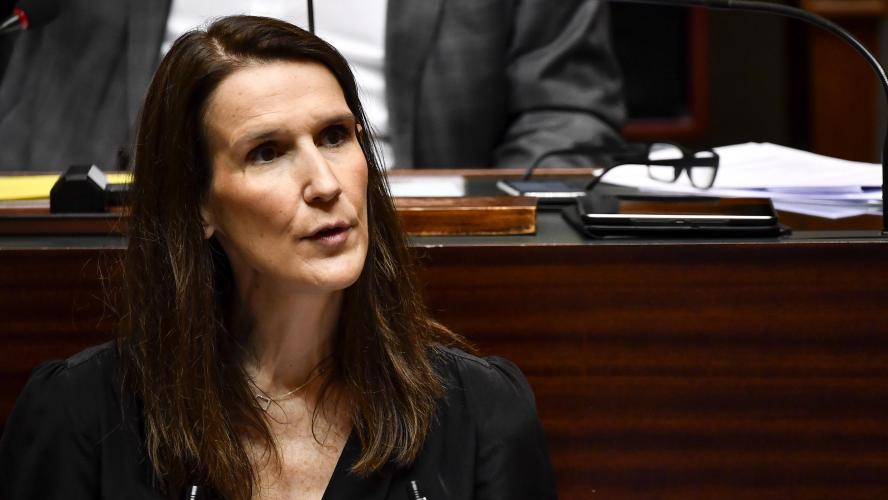The federal parliament is due this afternoon to give its approval to a proposal to grant a set of special but limited powers to the caretaker government of prime minister Sophie Wilmès, to allow it to manage the continuing coronavirus crisis.
The powers have already been given the approval of a majority in the parliament, with the exception of the right-wing N-VA, far-right Vlaams Belang and the far-left PTB-PVDA coalition.
Nevertheless, to become law, they require the approval of a vote in parliament. That will then allow the Wilmès government to pass legislation by Royal decree, within clearly-defined limits designed to cope with the crisis.
Normally, a caretaker government would not have the authority to do any more than govern on “running matters” – that is, according to existing legislation.
This afternoon, the package passed its first hurdle with the approval of the bill by the parliament’s home affairs committee. In this case, Vlaams Belang abstained and PTB voted against. N-VA passed the motion, but warned that the party would be extra vigilant that the actions of the government did not pass the limits imposed on the measures it can take.
Those limits are deliberately strict. The government may pass laws concerning the management of the sanitary crisis, including its economic and financial aspects. A number of procedural matters are adapted. The social effects of any measures introduced are strictly limited: there must be no negative effect on the purchasing power of households, or on social protections already in place.
“The situation is unprecedented, and requires an exceptional procedure,” commented federal budget minister David Clarinval (MR). “Faced with a situation in constant flux, time is precious, and the government needs to be able to step in at a moment’s notice.”
The special powers are granted for three months in the first instance, but can be renewed with the approval of parliament. Each new Royal decree, in addition, needs to be passed by parliament, but according to an exceptional fast-track process.
“This is not a blank cheque,” some MPs have warned.
According to the advice given by the Council of State, giving its opinion on the bill, the Senate also has to vote on the proposal. The chamber will come together at 17.30, following the vote by the parliament, so as to lose as little time as possible.
“Raising the matter and discussing it in plenary session allows the Senate to avoid delays,” the body said in a statement. “In fact, it can decide there is no need to amend the bill. Once that decision has been taken, the proposal can immediately be sent for the Royal Assent, and come into force the moment it is published in the Official Journal.”
The Council of State also warned that the powers granted to the government be strictly proportional in scope and restricted to the handling of the crisis.
“The medical crisis must not become a social crisis,” warned Ahmed Laaouej, head of the PS fraction in the parliament. “We have no room for error. The government has to do all it can to avoid problems, let alone chaos. We hope that you are deserving of the confidence we are placing in you.”
“These special powers must not forget the most vulnerable,” said Kristof Calvo of the Groen-Ecolo coalition. “All men are not equal in this coronavirus crisis. There also has to be a social aspect.”
Alan Hope
The Brussels Times

